OKJA Review
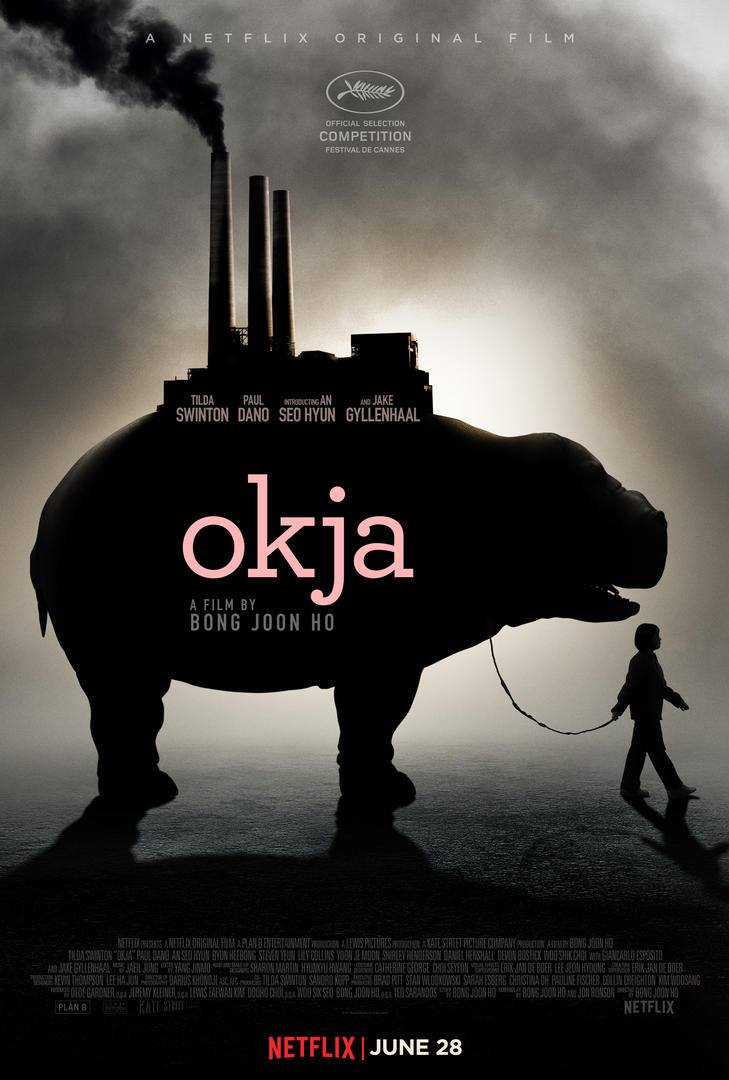
Director: Bong Joon-ho
Genre: Action, Sci-Fi
Year: 2017
Bong Joon-ho is a national treasure. Of all Korean filmmakers, he’s the one I would want to spend my summer vacation with. He’s a stylist, an academic, a storyteller, and a societal detective. He loves fun. And that’s so important in a crowd of Cannes darlings dominated by self-serious filmmakers. There’s something so infectious about Bong’s approach to storytelling. His bleakest tragedy isn’t without its bouts of humor, and his most dystopian sci-fi without its instances of highly saturated pop art. He is Korean formalism in the flesh. A filmmaker obsessed with compositional precision, balancing his Hollywood aesthetics with the whimsy of Korean culture. He is Steven Spielberg and Michael Bay, a filmmaker who respects geographical awareness and legible edits without forgetting to relish chaos. So it does pain me a little bit that the Netflix-exclusive OKJA is the worst film he has ever made. But still, even Bong’s worst film is one worth consuming.
First off, it is important to acknowledge that computer generated imagery has come a long way. OKJA is named after the film’s eponymous super pig, a titanic financial endeavor to ensure that Muslims and Jews have absolutely nothing to eat. Yes, I’m being facetious, but the point is that Bong’s latest film centers around a pig that basically looks like a cute hippo, and my God does it look convincing. OKJA takes every chance it can to remind its audience that this super pig is actively affecting its environment, from kicking a satchel out of the way to knocking over a dozen store racks as it uncontrollably rolls through a subway station supermarket. The fact that a streaming service can afford to animate a creature that is leagues more advanced than the frog/fish kaiju that Bong introduced us to in THE HOST is indisputably jaw dropping.
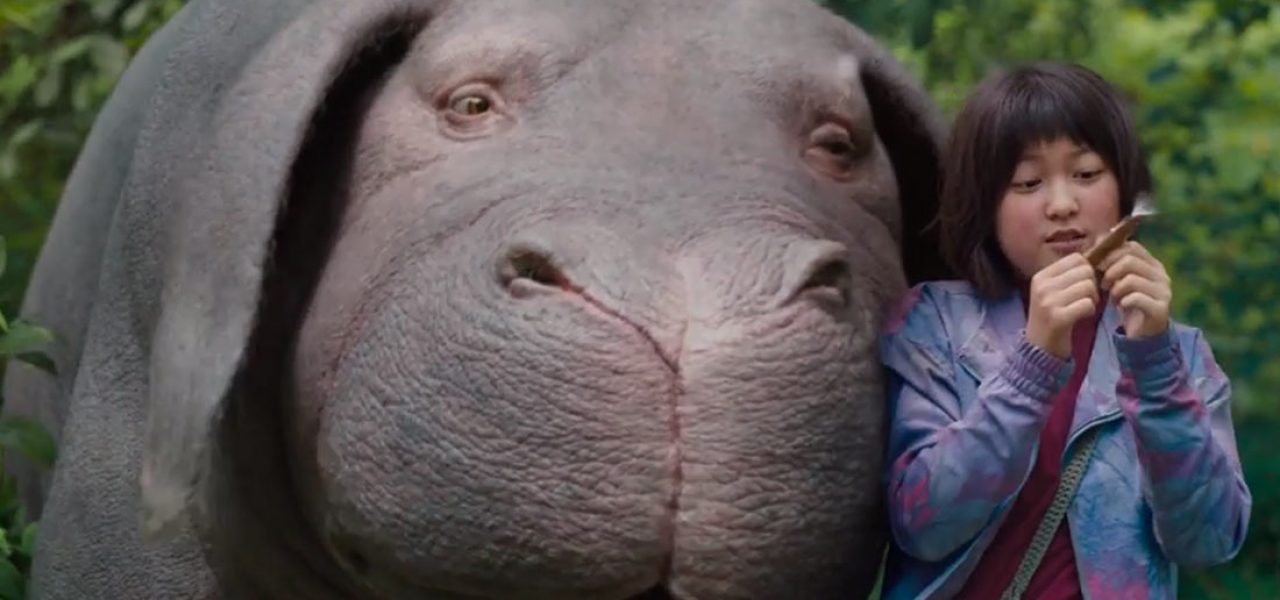
I’m very concerned about the Rule 34’s that are to follow
With the introduction of the super pig, Bong’s narrative is as black and white as a ying-yang symbol. (I already regret making that tactless analogy, but gotta move, gotta jive.) The super pig is cute and cuddly; her owner, Mija, played by Ahn Seo-hyun, ferocious, maternal, and protective. And everyone else is somewhat of a selfish bastard, down to Ahn’s allies at the Animal Liberation Front. So when Big Produce comes to take back their GM “monster” for repackaging, Bong doesn’t really need to do a lot to have us rooting for the creature’s survival. It is E.T. with the political nuance of a cannonball, but in this case that’s not exactly a bad thing.
OKJA is the type of children’s film that really doesn’t get made anymore. It’s not so much a film that happens to also be for kids as it is primarily a film for kids. It’s a film where a titanic creature runs wild through a metropolitan capital and is never gunned down. In the process, it cartoonishly squishes human beings against walls, but never actually hurts anybody. Hell, even when it eats a fish it makes sure to poop them out alive. OKJA is a film that remembers who its viewership often should be: kids looking to have a smile smacked on their face. Which is why I find it so baffling that Bong included 29 uses of the word “fuck,” alongside countless other profanities.
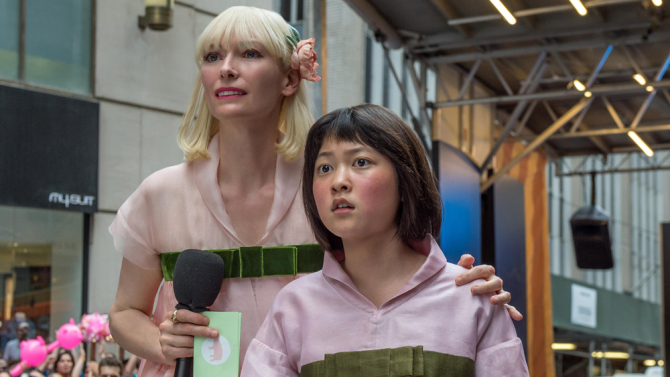
Drop the F bomb again, please? I like the way it feels
And before you label me as some child-rearing beta critic, consider the potential that OKJA presented. It’s a tale that preaches vegetarianism, dares to showcase the cruelty of slaughterhouses, let’s us fall in love with a cuddly animal, and does it all with the same AAA production value of an old Spielberg film. Why undermine the possibility of having your message reach children (the audience that is likely to have the most fun with your film) with a TV-MA/15 rating?
This is all made doubly problematic in a second act plot development that I probably shouldn’t give away. But to make my case, I’ll simply say it involves animal rape, something that sounds like a non-issue if it wouldn’t be for the fact that we really care for this super pig! It’s a segment that verges on rendering the experience into a horror film, especially when juxtaposed with the discomforting commentary and ensuing violent outbreak from Paul Dano, and Jake Gyllenhaal’s ungodly performance as a sadistic, narcissistic, alcoholic, nature spokesperson (yes, they’re in it too, the cast is kind of great).
OKJA is so unashamedly fun, but also remorselessly bleak. It’s a fascinating spin on a genre that is usually meant to be child-friendly, but I’d be hard pressed to say that this is the right way to promote the film’s message. In the case of such a politically motivated film, getting the message across is of paramount interest. Though this genre subversion resonates with me, I can’t say the same for other viewers. Nobody I watched OKJA with had the same excitement that I did watching it. The film is undeniably unique; opting out of gunfire, Wilhelm screams, and collateral damage by embracing a cartoon-like innocence is a noble spin on action filmmaking. But if this stylistic decision lessens the impact of what it’s preaching, I wonder when artistic integrity and political motivation get in the way of one another?
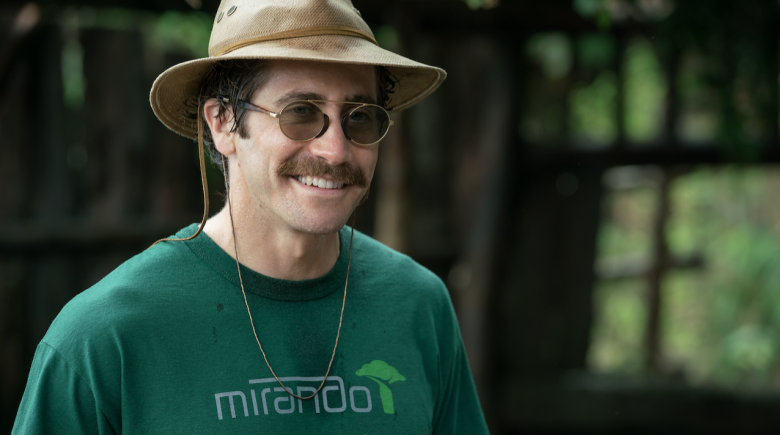
Putting the sociopathy of NIGHTCRAWLER to shame
OKJA presents Bong’s formalism at its prime (frankly, the man’s been in his prime since 2003, but I digress), weighing the careful balance of parallax, emotional attachment and political commentary to frame some inventive, and innocent, spectacle. Tilda Swinton, Jake Gyllenhaal, Paul Dano, and Giancarlo Esposito all deliver wacky performances with varying degrees of success. It’s satirical to the bone, and the caricatures are refreshingly absurd for a modern day blockbuster, constantly reminding me that Bong is a filmmaker entirely his own, not beholden to the expectations of a studio. And frankly, I applaud Netflix for allowing this project to flourish and make its scandalous debut at Cannes.
Yes, OKJA holds itself back more than it should. I’m not even sure I agree with the rather selfish solution that concludes its two-hour journey, but this underlying cynicism does wisely tie together the notion that the corporate world can’t just be destroyed with love. It’s questionable how politically effective Bong’s film will be, doubly so with the aforementioned criticisms. But for what it’s worth, OKJA is so fun, so cute, so charming, and so resolutely its own. In a cinematic climate populated by JURASSIC WORLDs, be an OKJA, be a BABY DRIVER, be a MAD MAX: FURY ROAD; even with their pitfalls, cinema is all the better for it.
Verdict: Recommend



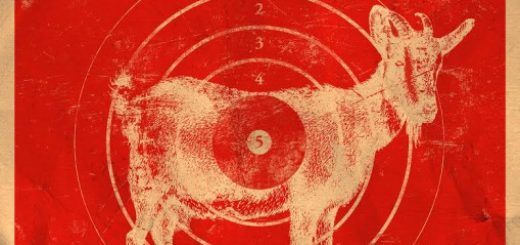
wharts the best way to cook an okja. would you rather have sex or eat okja,
please respond